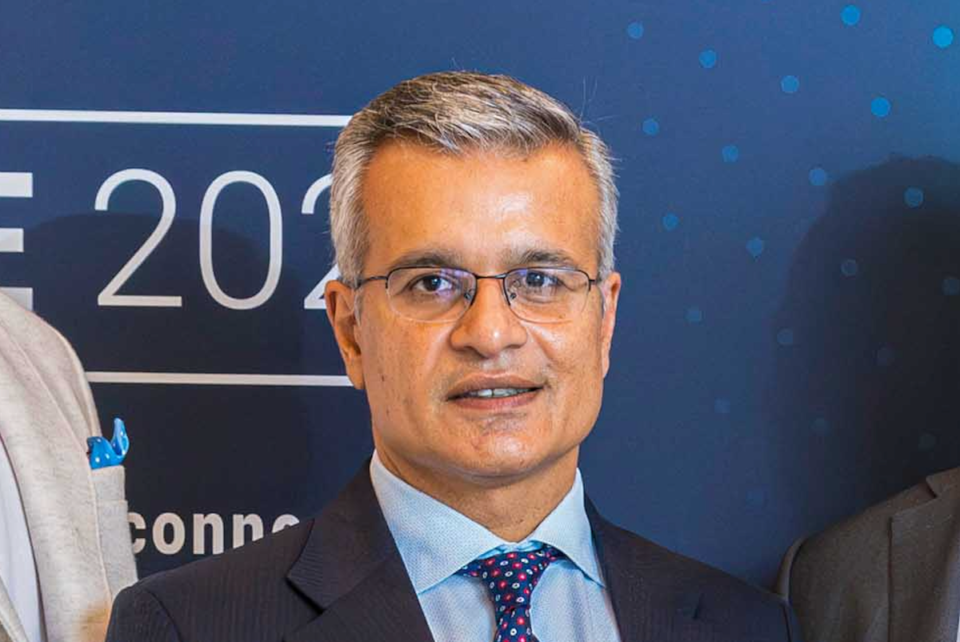The Middle Eastern real estate and investment firm DAMAC has built 10 hotels, 75 high rise towers and 47,000 apartments – and now has its eye on building data centres in Europe.
Its move is part of a wider trend in which real estate firms and investors are moving towards the data centre market as vacancy rates plunge to all-time lows and rents are rising.
EDGENEX, a subsidiary of DAMAC focused on building data centres, came into existence three years ago and has announced a 22,000 square metre 40 megawatt facility in Madrid, due to come online in 2026 at the Capacity Europe trade show in London.
Tarun Tyagi, Senior Vice President of DAMAC, International Business, says: “DAMAC was founded around almost 40 years ago. It is now operating in six main segments, one of which is real estate, which is historically what it has been more famous for. Now it is moving into data centres.”
DAMAC group is a family firm wholly owned by Emirati billionaire Hussain Sajwani: with a net worth of $5.1 billion, Sajwani is a close friend of Donald Trump
EDGNEX already operates in six countries, including Dubai, Saudi Arabia, and Beirut , with data centres announced in eight cities, totalling more than 300 megawatts, with a “lot more” in the pipeline, Tyagi says.
The Financial Times reports that large investment funds like Blackstone are now investing in data centres because of the potential for high returns with yields up to 12%, according to KPMG.
With sectors such as office and retail facing challenges, data centres are an increasingly attractive investment for real estate firms.
Tyagi says: “We acquire the land, we design and build, we own and manage the data centre from end to end.”
The company plans to spend 400 million euros developing the data centre in Madrid.
Tyagi says the company was attracted to Madrid due to the potential for growth and the fact that 60% of power comes from renewable sources – a factor that guides its European investments.
Tyagi continues: “That makes it quite unique from the point of view, being able to bring it to the market very quickly. There’s a tremendous supply-demand mismatch currently in the Madrid region, where demand is far outstripping the anticipated supply in the near term. So, in this data centre, we’re very excited. It’s our first investment in Europe.
“The other good thing about Madrid: it caters to all kind of segments. So there is tremendous demand from hyperscalers. This demand from enterprises. There’s even demand from businesses which have high performance compute and AI needs.”
The company is looking at further opportunities in Madrid, Barcelona and Zaragoza and across Europe, focusing on areas where there is a mismatch between supply and demand.
Part of the reason for the move is that Sajwani has a “futuristic focus”, Tyagi says, and a long-standing interest in AI.
DAMAC Group’s capital markets arm has invested in n AI companies such as Anthropic and xAI funded by Elon Musk, Tyagi says.
Being a family-owned business enables DAMAC and EDGENEX to take a longer-term view of the data centre business.
“We are not a fund,” Tyagi says. “We are a family owned business. We have a different mindset about how we can think about things, what the horizons might be, and take a view of making a positive contribution to society. It gives more flexibility to distinguish ourselves.”
The company is at “advanced stages” on “multiple fronts” within Europe, Tyagi says, and aims to make further investments with a long-term mindset.
“The other thing is since it’s owned by a family, there’s no exit predefined that you need to exit in a certain number of years,” he adds. “You can choose to hold it for a much longer time than what some of the other people may wish to do.
“It’s not like an institution’s third-party capital has been raised with a certain mandate in place. This is more about what feels right.”
Tyagi says he is confident that the data centre boom will continue – and that smart, flexible investors can benefit.
“The technology keeps evolving at a very, very fast pace,” he says. “So the pace of innovation which is happening over here is very, very, very fast. So anybody who is able to move fast enough and be flexible in this approach to be able to accommodate the growing needs of the digital thing can do really well.”

